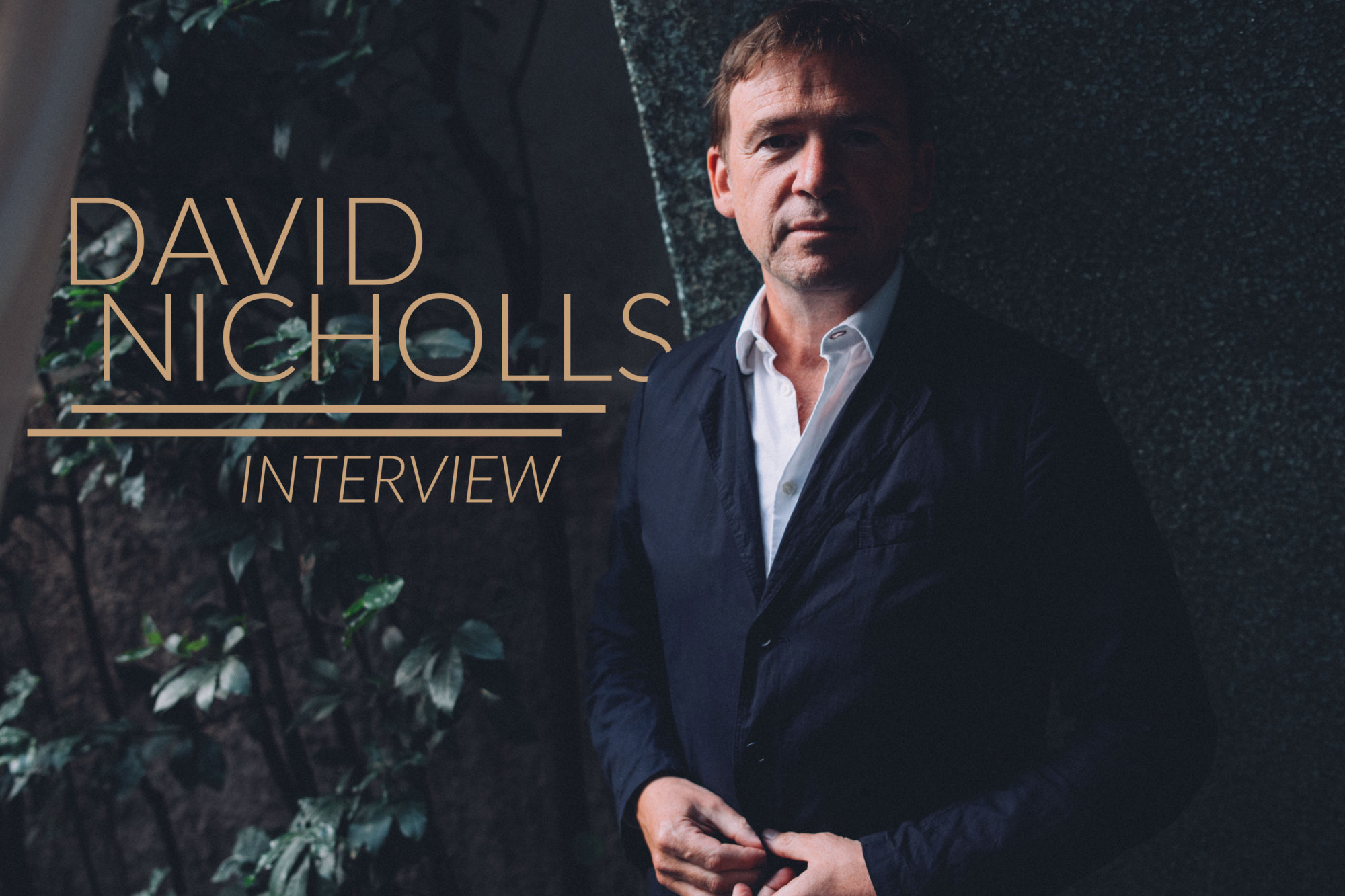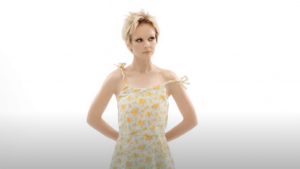When you see “Patrick Melrose” for the first time, you can’t be anything but upset, shocked and basically utterly speechless. Not only for the wonderful performances of the actors (including Benedict Cumberbatch, Jennifer Jason Leigh, and Hugo Weaving), the profound direction, a flawless script or for the story itself. But it’s the combination of all these things that makes this TV series something unique, a rare gem that shows us suffering, love, violence, hatred, and beauty. And it does so in a masterly way.
Patrick Melrose, played by Benedict Cumberbatch, is an adult torn apart by alcohol and drugs, but also a child who suffers violence from a world he shouldn’t know, he is a man who wants to die, a child who seeks the attention of his mother and, finally, is that character that, despite all that he does to himself and others, we love, with a small desire to protect him.
The book series by Edward St Aubyn on which the TV series is based was transposed into a screenplay by one of the most beloved writers of our time (a writer we infinitely admire): David Nicholls, author of the best-selling novel “One Day” (of which he also wrote the film screenplay), and screenwriter of “Far from the Madding Crowd.” The British writer knew he needed to take his time to fulfill this project, a challenging one so far away from anything he had done before: so for 5 years he dedicated his life to honoring this series of books he had fallen in love with, of which he wanted to show the violence and purity in, and above all, a respectful way.
And if similar combinations of things give us a TV series of this kind, one of the best of the recent years, then there is nothing to do but thank the man who has allowed all this with his screenwriting: David Nicholls.
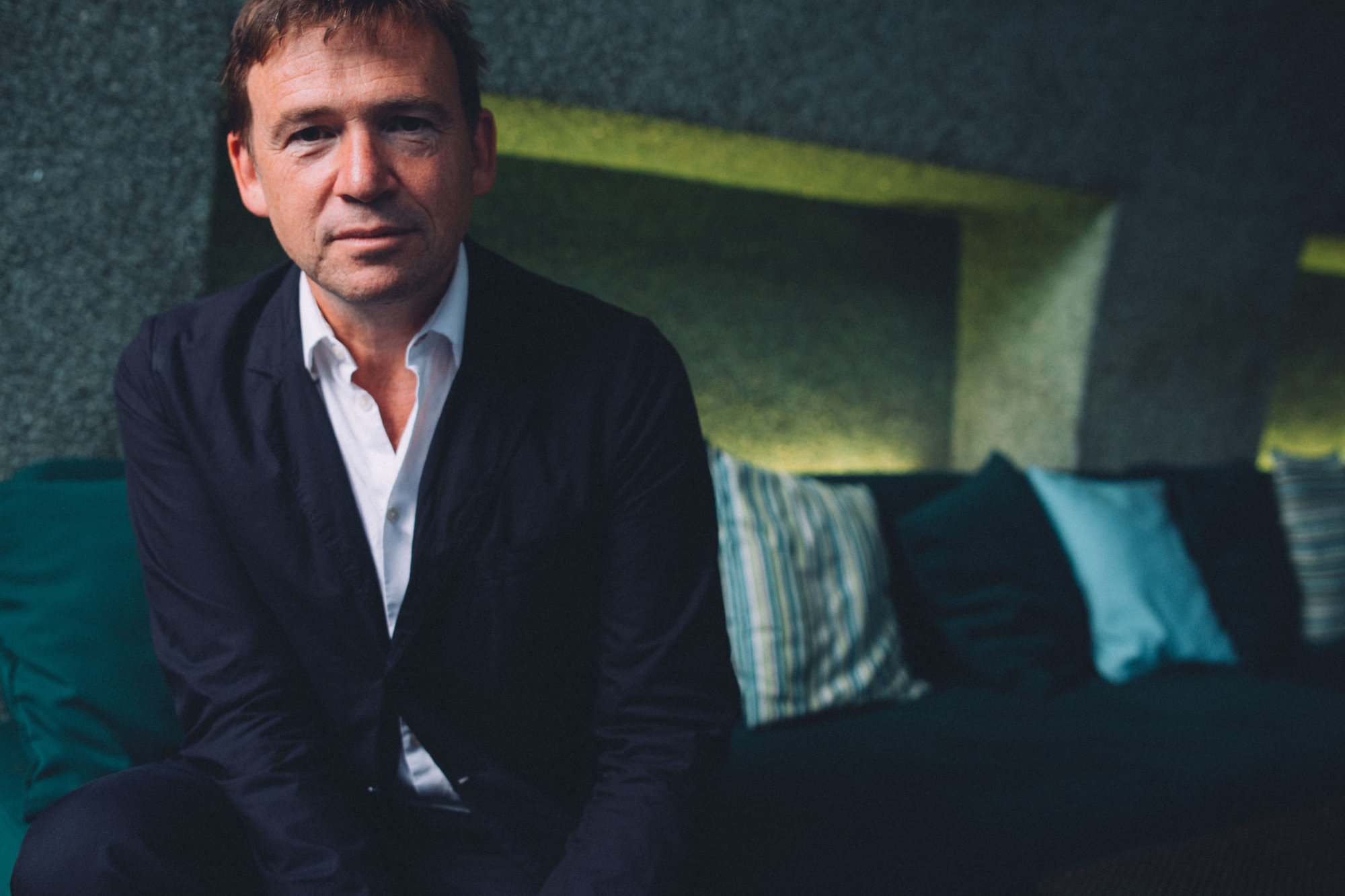
_______________
What was the most difficult scene to transpose from book to the screenplay, for you?
_______________
It’s very, very hard for me. I mean, when I write my own novels I want the books to be kind, and these books (“The Patrick Melrose Novels”) are very cruel, there is a lot of viciousness and a lot of violence. I found the script not hard to write because I drew on the novels, since they were my main source, but it’s a very harsh world, there is not a lot of love and not very much kindness and I thought it was important to adapt the books to bring that up, to give hope, particularly in the later episodes.
In the script, I found very hard to write about drugs or alcoholism because it’s a very internal thing that can appear quite unsympathetic and ugly from the outside. So, I worried a lot about how that would look on screen, since it had to be horrible but also compelling and watchable, so that was a difficult thing as well. The thing that I found easiest, I suppose, was the comedy, because I knew that Benedict (Cumberbatch) would be very, very funny and I knew that the dialogue in the novels is really, and I say really, brilliant. But yes, I have never written anything as dark as this, and I couldn’t have written anything like this without the books but that’s good, it felt like a good challenge to have to deal with something so intense.
_______________
In that moment, when the mother says “me too” or when we discover what is happening, we feel a lot of rage, resentment; we are angry and devastated and sad. It’s not always possible to make someone just feel everything. What was, for you, the key for such a perfect writing/acting and storytelling?
_______________
When I write books, what I really miss are the actors, I really miss working with actors because you don’t really know what they are going to do. And the scene where the mother tells him “me too” is not in the novel. It’s mentioned in the novel, yes, but it’s in his head, it doesn’t really happen as a scene. On the page it doesn’t look like anything at all, he says what happened and she says “me too” and it’s very short but they are really fantastic actors and you see his emotions playing over Patrick Melrose’s face; that anger she hasn’t taken in what he said in the way he had expected, a desire to be compassionate and sympathetic but also furious, and I think you can never really predict that on the page when you sat writing “me too.” You don’t know what he is going to do, so that is the mysterious element that I miss when I write books, as much as I love writing books, and I felt that in every episode: there were things that surprise me or that weren’t expected.

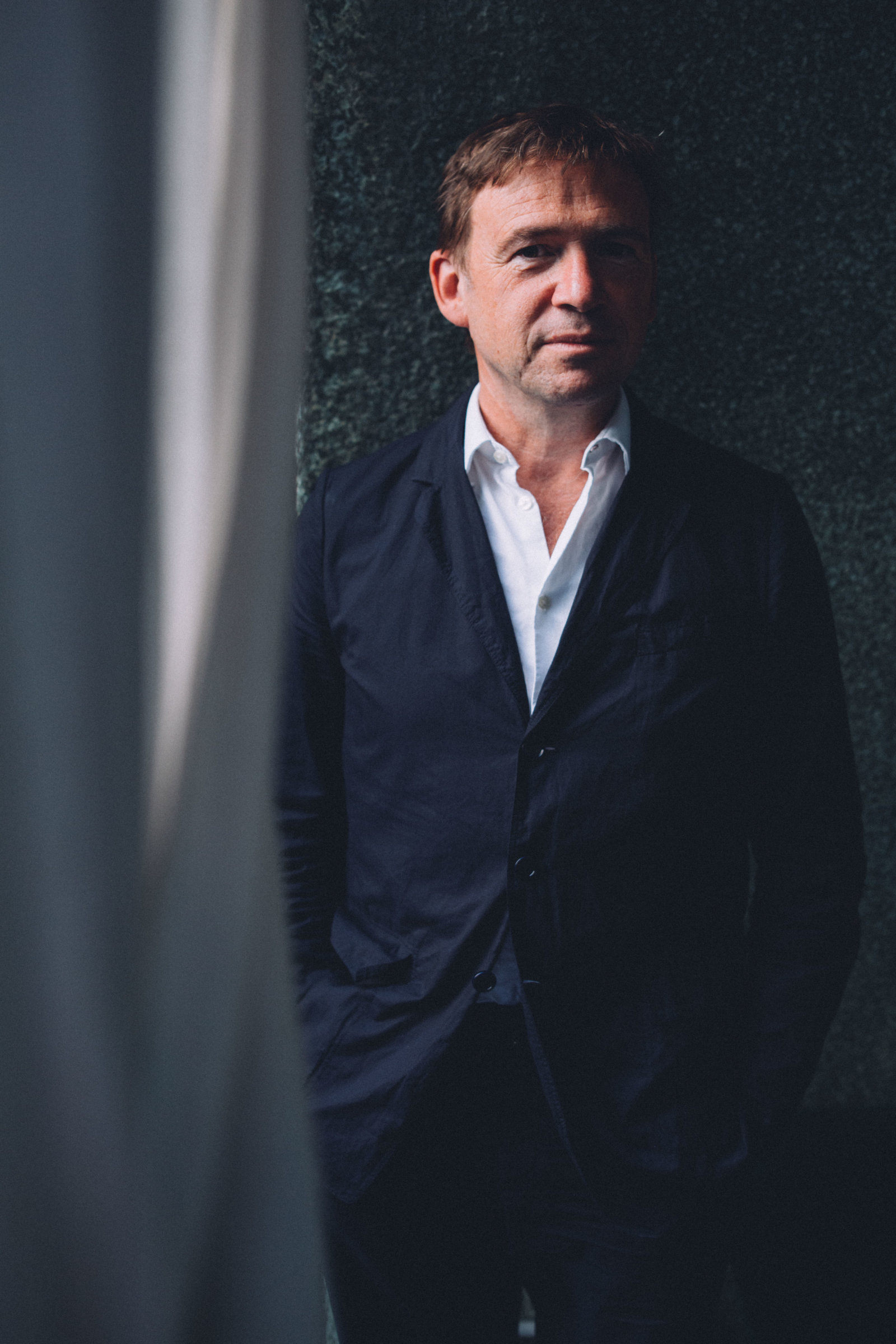
“You don’t know what he is going to do, so that is the mysterious element that I miss when I write books, as much as I love writing books, and I felt that in every episode…”
_______________
How did you prepare to write a complicated character such as Patrick and made people feel empathy for him?
_______________
I met Edward St Aubyn, but only once. He said, “we can talk a lot or we cannot talk at all and you can just go for the books” and I decided for the latter, so I didn’t do a lot of research outside the books, but I did go to some Alcoholics Anonymous meetings and Narcotics Anonymous meetings as an observer, but acknowledging everyone, not pretending I had a problem I didn’t have. I talked to a lot of people, so there was a certain amount of observation, but my main sources were really the novels because, as often being reported, there is a strong autobiographical element in the books. Benedict Cumberbatch did a lot more research than I did and he talked to a lot more people than I did because it was very important that he got everything right. But the happiest thing about the whole experience has been that people who have had similar experiences, or addictions or traumatic childhood events, have said that it is hard to watch but it is true, and that has been very reassuring.
_____________
It’s very respectful…
_______________
I think so. I think we didn’t want it to be a black comedy or frivolous: we wanted it to be upsetting in a proper way.

______________
The most powerful thing is that, when you finish watching it, you want to take action. What did you do or feel when you finished writing it?
______________
For the most part, I thought I would never finish writing this. Even when it’s finished and you think, “well, it’s finished now there is nothing I can do,” they still phone up and say, “we wonder if we need to put a voiceover here or maybe we can try this or can try that.” So, even now, it still doesn’t feel quite like it’s finished: I feel like they can still phone me up and say something. I was very worried all through the edit because it’s much different from anything I had ever worked on so, for me, it was not just the hardest thing but the fiercest thing, really frightening. Once I watched the first episode with an audience I thought, “it might be ok that it is shocking and crazy and frightening and tough, but not everyone turns away in horror, so that’s good.” I was pleased that people found it moving as well as shocking, and it’s been five years now since I’ve started writing and it stopped me from doing so many other things, so I’m also relieved for it to be over if I’m honest.
“I was very worried all through the edit because it’s much different from anything I had ever worked on so, for me, it was not just the hardest thing but the fiercest thing, really frightening.”
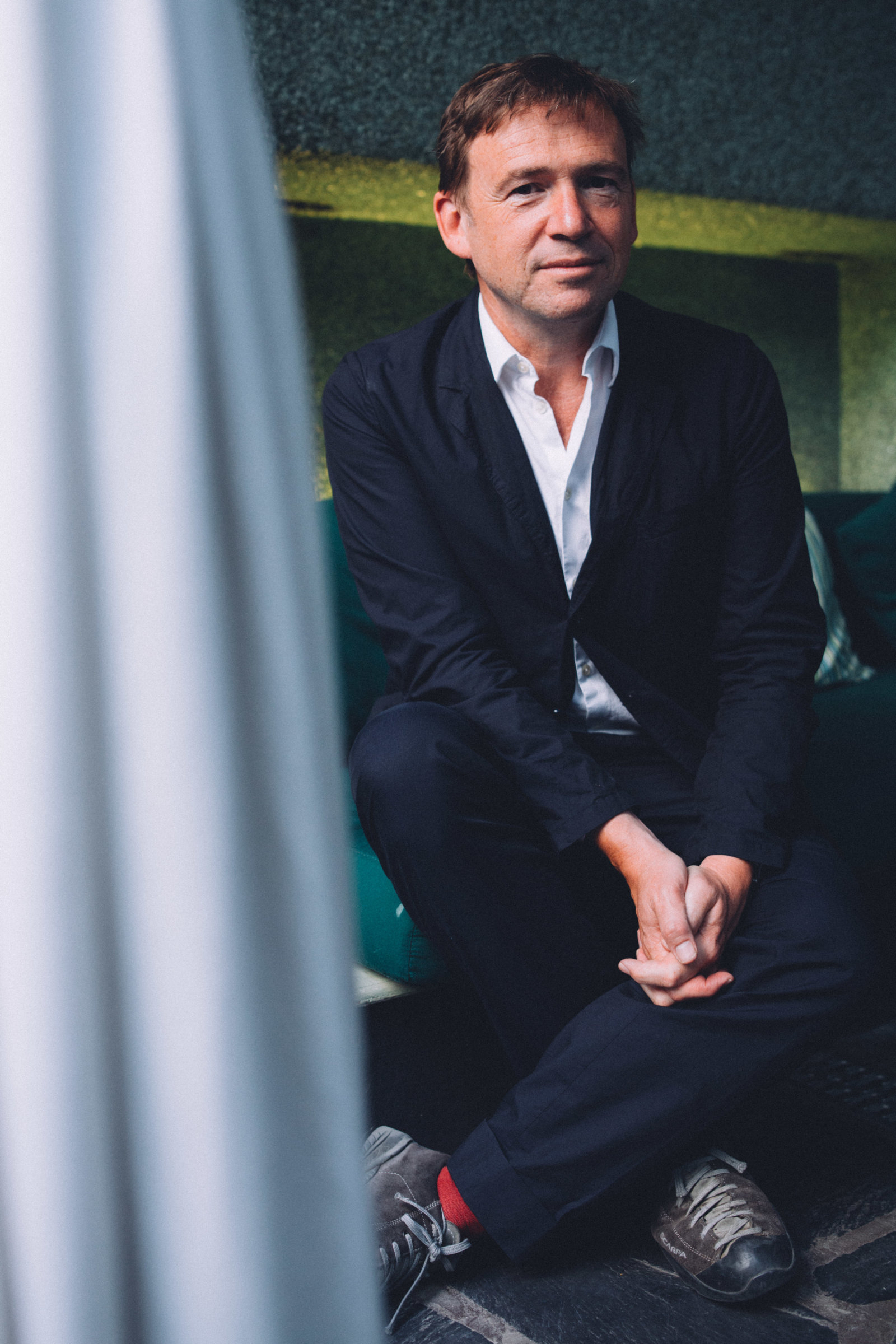
_______________
Was it like a dream project for you?
_______________
Yes! It was the one thing I always wanted to do; and for years I had the novels on audiobook and I just put my headphones on and walk around London, and every time I went out of the house I’d listen and listen so that I could recite the dialogues and I could know all the order of the scenes. And I’m really glad I don’t have to do that anymore because they are amazing books, but the world is full of poison and I want next thing I’m doing to be very sweet and kind.
_______________
Can you tell us what are you working on at the moment?
_______________
I haven’t completed a novel for five years so I’m doing all I can do to write a new novel. And I think I’m writing a children’s film, about which I can’t say any more: it’s a sort of secret because it’s a great book. But I’m going to do the complete opposite (of “Patrick Melrose”).
_______________
What’s your favorite font?
_______________
It’s interesting, you know. There is a rule, which is that when you are writing a novel, you shouldn’t write it in a font that looks good, because when you read it you are already pleased with it and you think, “oh, they can publish this tomorrow, it looks great!”. So I don’t write in my favorite font. When it’s finished, though, I turn it in Garamond because, then, it does look like a novel: it looks like an American novel and I like American novels. But with scripting, you are only allowed to write in Courier. If you don’t write in Courier, they send it back.

Photo Credits: Johnny Carrano.

